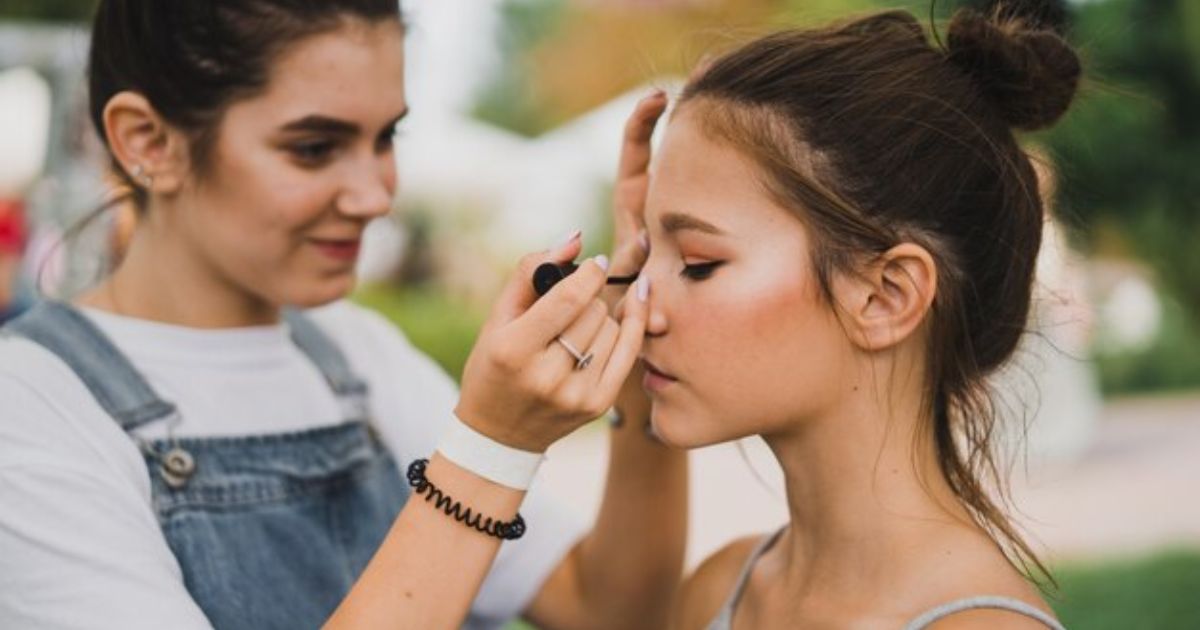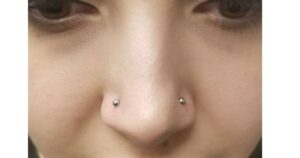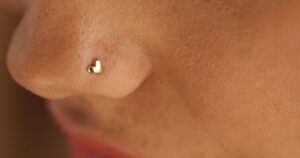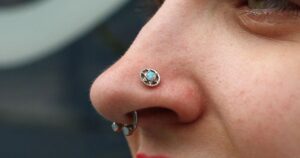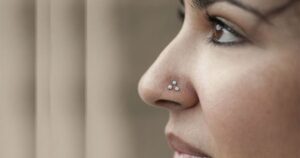Nose piercing smell refers to the distinct scent associated with the healing process of a newly pierced nose. It is a temporary odor caused by the presence of natural skin oils, sweat, and the healing solution applied to the piercing. This smell is generally mild and fades as the piercing heals. Proper cleaning and care help minimize any unpleasant odors during the initial stages of nose piercing.
Curious about that unexpected scent from your nose piercing? Wondering, Why does my nose piercing smell? Uncover the answers to this common question as we dive into the reasons behind the temporary odor and discover practical tips for a fresh and odor-free healing process. Let’s unravel the mystery together and ensure your nose piercing experience is as pleasant as possible.
Is a common inquiry among those with newly pierced noses. This phenomenon is often a temporary occurrence during the healing process, caused by factors like skin oils, sweat, and the healing solution. Understanding the reasons behind the smell and adopting proper care practices can help minimize and eliminate any unpleasant odors associated with a nose piercing, ensuring a smoother healing journey.
What causes the nose piercing smell?

The nose piercing smell is primarily caused by a combination of factors during the healing process. When you get your nose pierced, your body triggers a natural healing response, and during this phase, skin oils, sweat, and the solution used for cleaning the piercing can contribute to a distinct odor. It’s important to note that this smell is usually temporary and is part of the body’s natural response to the introduction of a foreign object.
To break it down further, the sebaceous glands in the skin produce oils that mix with sweat, creating a unique scent. Additionally, the cleaning solution applied to the piercing site can also add to the olfactory experience. Understanding these factors and adopting proper cleaning practices can help minimize the smell associated with a nose piercing, ensuring a more comfortable healing journey.
How to prevent a nose piercing smell from recurring
To prevent a nose piercing smell from recurring, consistent and proper care is key. Begin by maintaining a regular cleaning routine using a saline solution or a solution recommended by your piercer. Gently clean the pierced area without overdoing it, ensuring you remove any accumulated oils and debris. Avoid touching the piercing with dirty hands and refrain from rotating the jewelry excessively, as this may irritate the healing process.
What could be causing your nose piercing to smell bad
If you’re wondering what might be causing your nose piercing to smell bad, there are a few common culprits to consider. Firstly, during the initial healing stages, natural skin oils, sweat, and the healing solution can interact, producing a temporary odor. Ensuring proper hygiene practices, including regular cleaning with a recommended solution, can help alleviate this issue.
How to clean your piercing and stop the smell
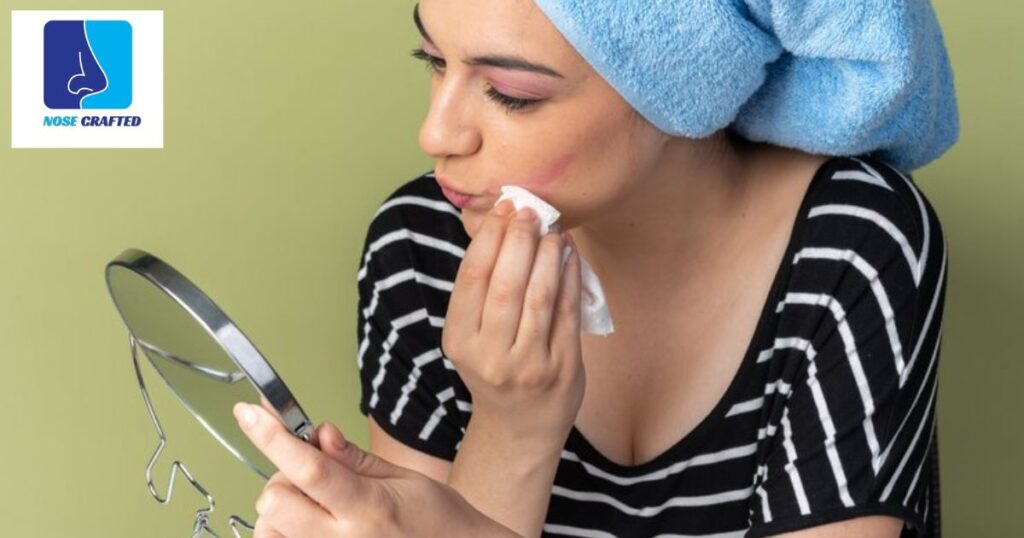
Cleaning your piercing is crucial for preventing and eliminating any unpleasant smells. Start by washing your hands thoroughly with antibacterial soap. Gently clean around the piercing site using a saline solution or an antiseptic solution recommended by your piercer. Avoid harsh chemicals or alcohol-based products, as they can irritate the skin. Gently rotate the jewelry during cleaning to ensure the solution reaches all areas.
If you’re dealing with an odor issue, consider using a saline solution to soak your piercing. A saline soak helps to flush out bacteria and debris, reducing the chances of a lingering smell. Be mindful of your daily activities; avoid touching or twisting the jewelry excessively, as this can introduce bacteria. Choose breathable materials for your jewelry, such as titanium or surgical stainless steel.
why does my nose piercing smell after years?
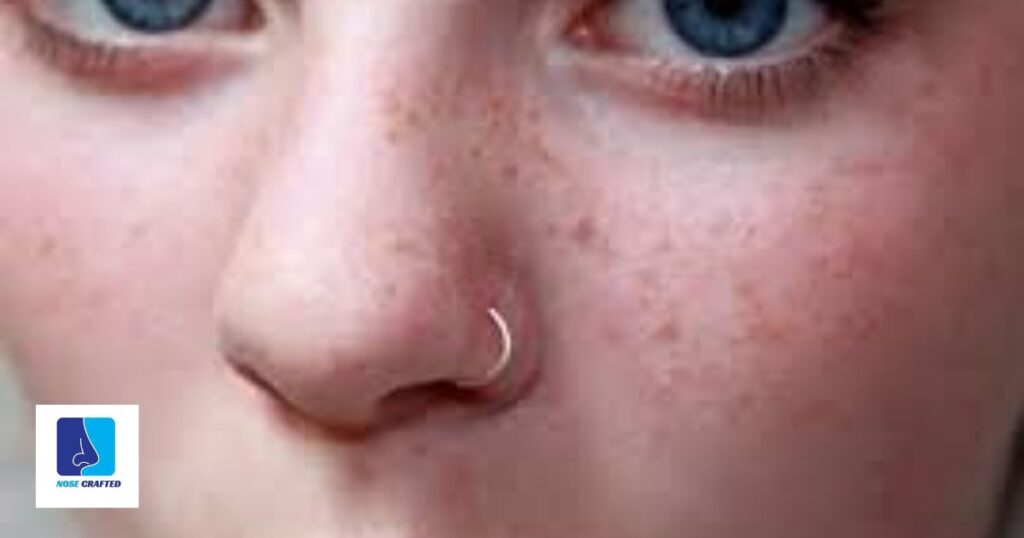
It’s not uncommon for individuals to wonder why their nose piercing emits a smell even after several years. Despite the passage of time, a lingering scent could be attributed to factors such as accumulated debris, residual skin oils, or the use of certain jewelry materials. Even well-healed piercings may occasionally trap particles that lead to a mild odor. Regular cleaning and maintenance are crucial to address this issue and ensure the longevity of a fresh and pleasant nose piercing experience.
why does my nose piercing smell weird?
It’s not uncommon for individuals with a newly pierced nose to notice a peculiar scent during the healing process, leading them to wonder Why does my nose piercing smell weird? This temporary phenomenon is often attributed to a combination of factors. The natural oils produced by the skin, sweat, and the healing solution applied to the piercing can contribute to the development of a distinct odor. It’s crucial to understand that this smell is typically part of the normal healing process and is not necessarily a cause for concern.
Why does my nose piercing smell like metal?

1. Normal Healing Process: A metallic scent from your nose piercing is often a sign of the body’s natural healing response, indicating the presence of minerals and ions associated with the formation of new tissue.
2. Metal Jewelry Reaction: Certain metals used in nose jewelry, such as surgical stainless steel or titanium, may react with skin oils and produce a metallic odor. Opting for high-quality, hypoallergenic metals can minimize this effect.
3. Indicator of Hygiene: A slight metallic smell can indicate a clean healing process. Regular cleaning with a saline solution helps prevent infection and maintain a healthy piercing.
4. Low Maintenance: Metal nose jewelry is generally low maintenance, requiring minimal care to keep the piercing clean. This simplicity can be a benefit for those seeking an easy aftercare routine.
5. Durability and Longevity: Metal jewelry is durable and less prone to wear and tear, ensuring the longevity of your nose piercing adornment without the need for frequent replacements.
6. Wide Range of Styles: Metal nose jewelry comes in various styles, shapes, and colors, providing a versatile and fashionable way to express your personal style while enjoying the benefits of a nose piercing.
7. Reduced Allergic Reactions: High-quality metals like titanium are less likely to cause allergic reactions, making them a suitable choice for individuals with sensitive skin, and contributing to a more comfortable and enjoyable nose piercing experience.
Why Are My Piercings Discolored?

Have you noticed a change in the color of your piercings and wondered Why are my piercings discolored? This common concern can arise due to various factors, such as the type of metal used in the jewelry, the body’s reaction to the metal, or even environmental influences. Nickel-containing metals, for instance, may cause discoloration or irritation in some individuals.
Why is My Poop Black Uncovering the Causes and Solutions
Have you ever wondered Why is my poop black? It’s a question that might raise concerns, but fear not there are various reasons behind the mysterious color change. The most common cause is the consumption of certain foods or medications, such as iron supplements or bismuth-containing substances. These can darken the stool temporarily. It’s crucial to be aware that black stool could also be a sign of gastrointestinal bleeding, so it’s essential to understand the different factors at play.
What Are Piercing Cleaning Methods?

Piercing cleaning methods are crucial for maintaining the health and hygiene of your fresh piercing. It’s a new earlobe piercing or a trendy nose stud, proper cleaning helps prevent infections and promotes a smooth healing process. The chosen cleaning approach depends on the type of piercing and the piercer’s recommendations, typically involving saline solution, mild soap, or specialized aftercare solutions.
Saline solution, a mix of non-iodized sea salt and warm water, is a popular and gentle method for cleaning piercings. This solution helps remove debris and reduce the risk of infection without causing irritation. Mild, fragrance-free soap can be used sparingly, ensuring it’s thoroughly rinsed to prevent residue buildup. It’s crucial to avoid harsh chemicals, alcohol-based solutions, and rotating or twisting the jewelry during cleaning, as these practices can hinder the healing process.
How Do I Clean My Piercings So They Won’t Smell?
Keeping your piercings clean is crucial for preventing unwanted odors. If you’re looking to enhance your piercing experience and maintain optimal hygiene, consider incorporating a simple yet effective routine. Begin by using a saline solution, a blend of warm water and a teaspoon of sea salt. Gently cleanse the pierced area with a cotton swab or pad, ensuring thorough coverage. Avoid abrasive substances such as harsh chemicals or alcohol, as they can hinder the natural healing process. Make it a habit to clean your piercings at least twice a day to ensure their cleanliness and promote overall well-being. If you’re interested in exploring more ways to enhance your piercing journey, you might want to learn about the benefits of using a saline solution to get nose piercings.
The Healing Process
The healing process of a nose piercing is a crucial phase that requires patience and proper care. After the initial piercing, your body initiates a natural response to repair the wound, leading to the formation of a protective layer around the jewelry. During this time, it’s common to experience a mild smell emanating from the piercing site due to the combination of skin oils, sweat, and the healing solution applied.
Navigating the Initial Stages of Nose Piercing
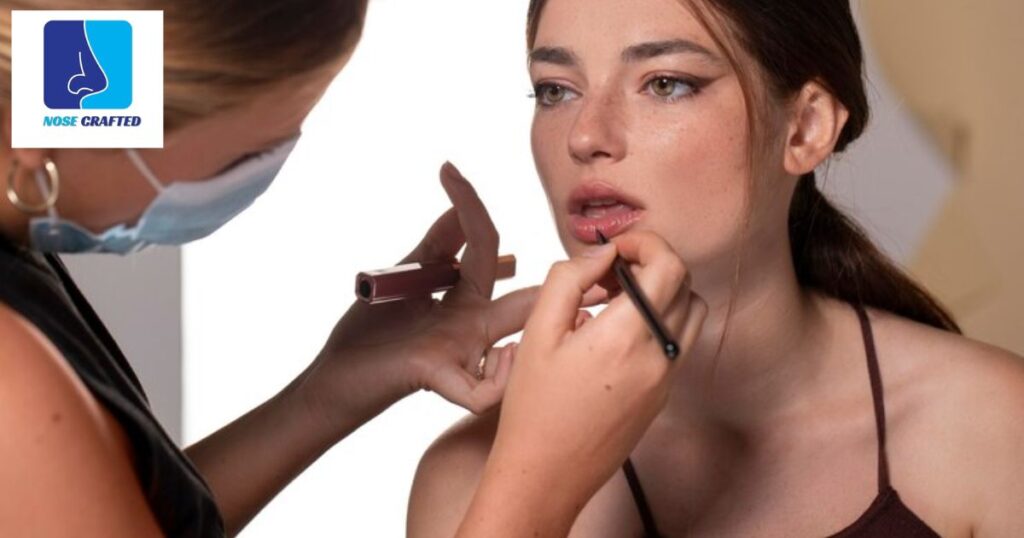
Embarking on the journey of a nose piercing involves navigating the initial stages with care and awareness. In the first few days after getting your nose pierced, it’s normal to experience mild swelling, redness, and, yes, a temporary smell associated with the healing process. This odor is primarily caused by the presence of skin oils, sweat, and the healing solution applied to the piercing site.
To navigate the initial stages of nose piercing successfully, diligently follow the aftercare instructions provided by your piercer. This typically involves cleaning the piercing with a saline solution, avoiding touching the area with dirty hands, and refraining from changing the jewelry too soon. Keeping the pierced area clean and following these guidelines not only accelerates the healing process but also ensures a more pleasant and odor-free experience as you embark on the exciting journey of showcasing your new nose piercing.
FAQ’s
How do I stop my nose piercing from smelling?
To prevent nose piercing odor, maintain diligent cleaning with a saline solution, avoid touching with dirty hands, and refrain from changing jewelry too soon.
Why do healed piercings smell?
Healed piercings typically do not have an odor any smell associated with a piercing is more common during the initial healing stages due to residual skin oils, sweat, or lingering healing solution.
Why does my nose piercing smell after a year?
A lingering smell from a nose piercing after a year may be due to accumulated bacteria, skin cells, or residual debris around the jewelry, emphasizing the ongoing importance of proper cleaning and maintenance.
How do you get rid of a smelly nose?
To eliminate a smelly nose, practice proper hygiene by cleaning the nasal passages with a saline solution, staying hydrated, and addressing any underlying issues like infections or allergies.
Should you be worried if your nose piercing smells bad?
No, a temporary bad smell from a nose piercing is usually normal during the healing process and is not a cause for serious concern.
Conclusion
If you find yourself wondering Why does my nose piercing smell? there’s no need for undue worry. The temporary odor associated with a nose piercing is a common occurrence during the initial stages of healing and is typically attributed to factors such as skin oils, sweat, and the healing solution. Embracing the natural process of healing and understanding that this scent is transient can alleviate concerns and contribute to a more positive piercing experience.
Remember, diligent aftercare practices play a pivotal role in ensuring a successful and comfortable healing journey. Following the guidelines provided by your piercer, such as regular cleaning with a saline solution and avoiding unnecessary touching, will help accelerate the healing process and reduce any unpleasant smells. If at any point you have concerns about the smell or notice signs of infection, seeking professional advice is advisable.
